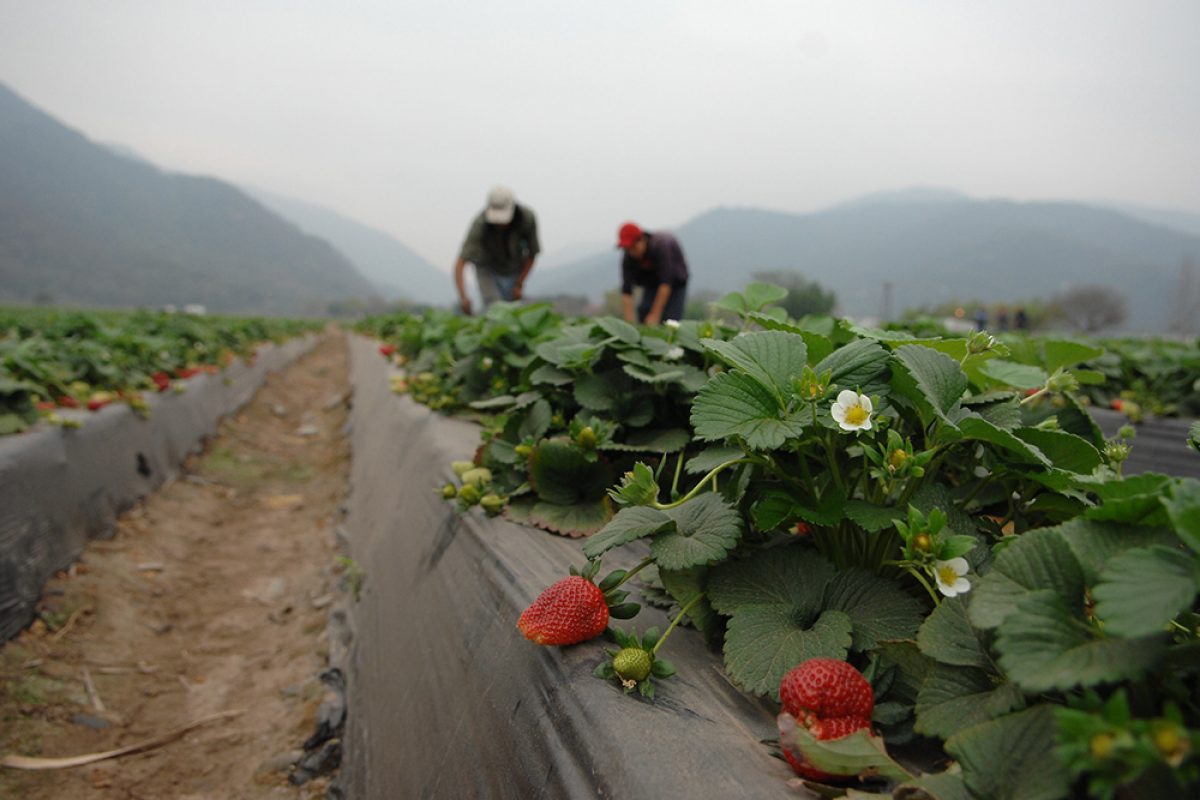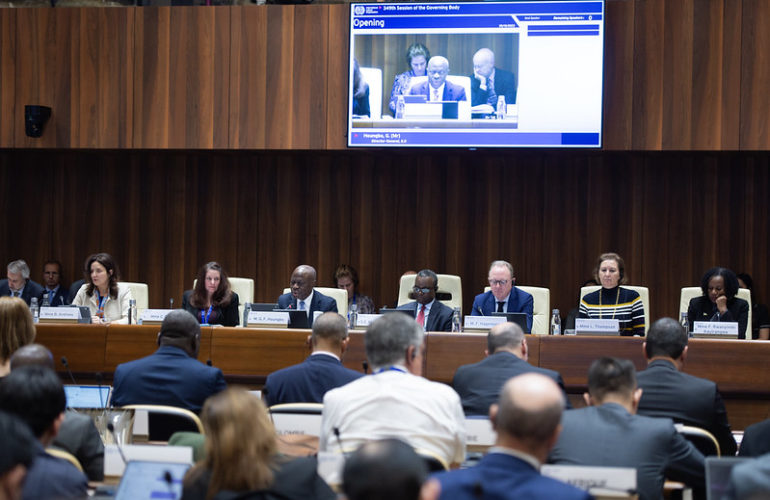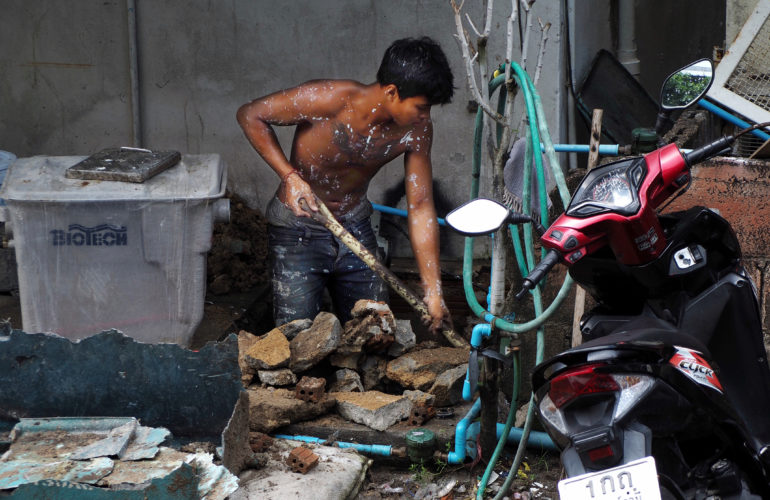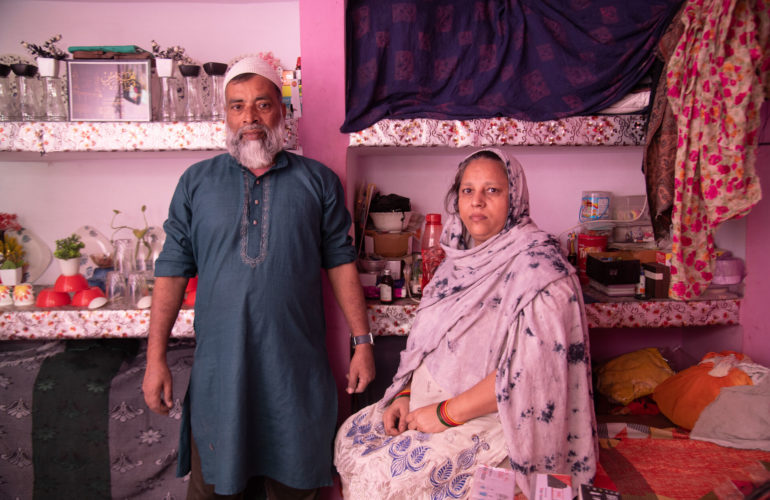COVID-19 Pandemic Reveals Crisis in Europe’s Agri-Food Workers’ Rights

As the global coronavirus pandemic limits travel, labor shortages in Europe’s agricultural and food transformation sectors could jeopardize food security. These sectors are highly dependent on seasonal migrant workers. ICMC Europe and other civil society organizations call on leaders to consider this an opportunity to overhaul a broken system and replace it with a fairer food industry.
“Support farmers, but don’t support a broken system,” civil society organizations are urging the European Union and its Member States who are setting up measures to keep the agri-food industry active during the COVID-19 crisis. Their call to action comes in a 16 April joint statement.
Europe’s food industry relies heavily on seasonal migrant workers brought into countries to gather crops and pack and transform food products. The sector employs 200,000 migrant workers in France, 250,000 in Italy, 300,000 in Germany, and about 75,000 in the UK, hired to pick fruit and vegetables and pack and process food.
The migrant seasonal workers come mainly from Eastern Europe and the African continent. In many countries, they are needed urgently, as the harvesting of crops cannot be delayed. In response to the emergency, some European countries have relaxed their non-essential travel bans to allow entry to migrant workers.
The joint statement signed by 28 NGOs, including the International Catholic Migration Commission’s European office (ICMC Europe), asks the EU and its Member States to consider current conditions as an opportunity to review unfair practices in the agri-food industry. The aim of these revisions is twofold: to keep migrant workers safe during the current health crisis, and to offer them dignified long-term living and working conditions. The statement emphasizes the importance of ensuring that migrants have access to regular pathways for migration, legal documentation and State protection.
Agri-food workers are among the most at risk of contracting COVID-19. They often live in cramped, unsanitary housing where social distancing is impossible. They work in close proximity to one another in transformation plants. They have no access to protective gear, testing, or paid sick leave.
“What the lack of workers in the fields should also demonstrate is that labor conditions in the agri-food sector have been ignored for too long,” reads the joint statement.
Migrant workers in Europe’s food industry are often forced to live and work in shocking conditions. Wages are extremely low, and the incidence of accidents and illness is the highest of any sector. Their work is often undeclared, and they are denied social benefits. Poor working conditions and exploitation by employers often amount to modern-day slavery.
NGOs call on the EU and national governments to review the migration procedures for seasonal workers. “Existing EU legislation on regular migration […] has proven to be inadequate both in ensuring that migrant workers’ rights are respected and in meeting demand,” reads the statement.
“The European Commission should therefore expand and strengthen existing legal migration pilot projects in dialogue with trade unions and other organizations working with migrant workers. These mechanisms should enable migrant workers to apply [for work and residence permits] in country, accrue residence rights, convert permit types and change employer.”
Undocumented workers in Europe are most vulnerable to illness and abuse and have the least recourses to defending themselves. Governments must grant them work permits. This will ensure that they and their families can access declared employment and State services such as healthcare, sick leave and unemployment benefits. In the face of the COVID-19 pandemic, expiring permits should be prolonged and pending permits accepted so that travel restrictions and administrative delays don’t lead to people becoming undocumented.
ICMC has long been advocating for increased pathways to legal migration, migrant’s access to State services and fair employment through its coordination of the Global Forum on Migration and Development Civil Society Office. Through its work with the SHARE Network, ICMC Europe promotes the integration of refugees in Europe’s smaller communities, where many agri-food workers settle. The SHARE Network also advocates for complementary admission pathways for refugees to enter Europe.
- Read the NGO statement on seasonal migrants’ rights in the European Union
- Learn more about the SHARE Network
- Learn about ICMC’s work as coordinator of the Global Forum on Migration and Development Civil Society
- Learn more about ICMC’s work advocating for migrants’ rights during the COVID-19 pandemic


